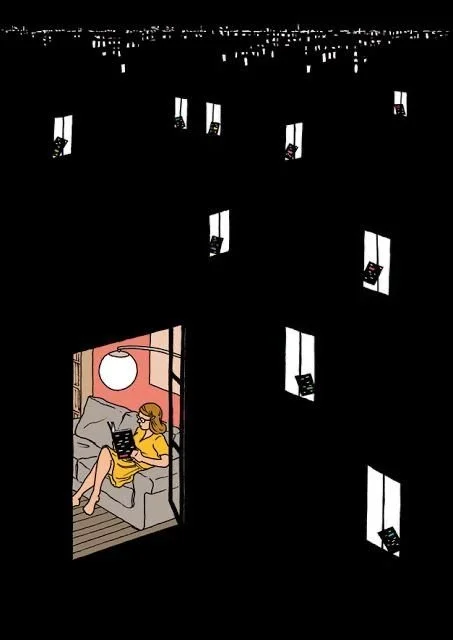Dangers Behind Closed Doors: Living with Toxic Family Secrets
Did you grow up in a family where secrets were kept from other family members? Were secrets kept from you? Were you ever asked to keep a secret from everyone else in the family?
When secrecy, hidden trauma, lies, and deception are at the core of a family dynamic, the doors aren’t just closed—they can be dangerous. When someone tries to open those doors, perhaps in search of truth or understanding, they risk triggering the very defenses that have kept the family’s pain buried for generations. Family members may turn against them, dismiss their concerns, or label them as the “black sheep” or the “troublemaker.” Some even lose contact with family simply because they sought to uncover the root of their family’s pain or dysfunction.
Families built on secrecy often repeat the same patterns, as unresolved pain becomes normalized and passed down across generations. In this post, we’ll explore what happens when secrecy becomes central to a family system, what kinds of secrets make a family dynamic toxic, and the emotional and psychological costs of keeping them.
Families Are Dynamic Systems
Toxic family secrets tend to hinder open and honest communication. In a healthy family system, there is flexibility, open communication, and emotional safety, allowing each member to move independently while remaining connected to the larger system. But in families burdened by secrecy, trauma, or rigid rules, the system can become gridlocked. Communication breaks down, emotional energy gets trapped, and family members start to navigate around the “blocked roads” of unspoken pain or avoidance. Like a city with hidden infrastructure problems, unresolved issues beneath the surface can eventually disrupt the entire network.
How Secrets Become Dangerous
Family secrets take many forms, from concealed information and taboos to invisible loyalties or unspoken rules that shape how members relate to one another. They’re often avoided, off-limits, or outright forbidden to speak about. They’re swept under the rug because they carry shame, guilt, fear, or because they threaten the family image.
Infidelity, sexuality, an unknown child, adoption, suicide, financial debt, abuse, incarceration, mental illness, addictions, forced marriages, family conflict, and estrangement often trace back to decades, or even generations, of secrecy and denial.
Fear, guilt, shame, denial, and minimization are all examples of control tactics used to manipulate family members from speaking out. This atmosphere isn’t just toxic, but dangerous, especially when it conceals information that protects abuse or neglect. It prevents children and adults from learning to trust and form healthy emotional bonds with parents, siblings, or extended family members. The culture of lies become the family rule, fostering mistrust, relational avoidance, and emotional disconnection.
How Secrets Are Kept Within Families
Individual Secrets - These are held by one person who feels too ashamed, afraid, or uncertain about how revealing their secret will affect their relationship with their family. For example, someone may hide their sexuality because of family culture or religious beliefs that lead them to fear ostracization, being cut off, or bringing shame to the family. They may also fear how the truth could hurt their family members and their reputation within their community.
Carrying a secret alone creates isolation, internal conflict, and chronic stress. This burden can manifest into serious physical and psychological symptoms due to the prolonged distress. Living a double life can lead to never feeling safe to be yourself with the family, grief over the loss of belonging, and constantly being vigilant that the secret will come out. Individual secrets are very common in families, especially when there’s a sense that “it’s not safe to be myself,” fear of rejection, or worry about facing negative repercussions if the truth is revealed.
Internal Secrets - These are shared between two or more family members, creating alliances or “split loyalties.” A child, for instance, may be asked to keep a harmful secret about one parent from the other. This dynamic places children in an unsafe emotional bind, blurring boundaries and teaching them to prioritize the secret-keeper’s needs over their own safety.
Internal secrets can also exist between siblings or between a parent and a child. Sometimes these secrets are maintained out of fear, such as being cut off from the family, or because keeping the secret is framed as an act of loyalty or special bonding. Other times, secrecy arises from shame or a desire to protect others in the family. The motivations behind internal secrets are complex and tied to fear, shame, and loyalty.
Shared Family Secrets - These are secrets kept within the family, but never openly acknowledged. They often involve taboo topics such as affairs, addiction, abuse (i.e., sexual violation in the family), incarceration, or severe mental illness. These secrets are maintained through unspoken family rules, such as “Don’t trust outsiders” or “What happens in the family stays in the family.”
Such secrecy makes forming intimate relationships challenging, as lying, masking, and emotional distancing become necessary to hide the truth about one’s family background. In therapy, when people begin to share long-held family secrets, they often feel immense guilt. It can take many sessions, or even years, for someone to trust a professional enough to disclose what has been hidden, due to deep-rooted loyalty and the powerful sense of obligation to protect their family.
How Family Secrets Affect Mental Health
Whether individual or shared, secrets can feel like heavy burdens that wear people down over time. For example, a child discovering a parent’s affair and the impossible position that child is put in: should they confront the parent, tell the other, or carry the secret alone? Each choice carries guilt, shame, and emotional exhaustion. Psychology calls this burden cognitive load, the mental exhaustion of carrying or concealing a truth. Holding secrets is mentally and emotionally draining, especially when the secret has lasted for generations.
This can also create a phenomenon called an unshared reality. When you know something your family denies, you live in an alternate emotional reality. This creates isolation and detachment. You feel alone because the truth sits in your lap, and no one else will acknowledge it.
These hidden truths can harm future generations, especially when the secret involves abuse or betrayal. When silence protects abusers, the trauma can repeat itself through generations. Families caught in cycles of secrecy experience internal conflict: Do I speak up and risk rejection, or do I stay silent and live with guilt?
These dynamics of hidden truths, alliances, and unspoken pain create a tangled web that makes healing and connection within families incredibly difficult. By naming and understanding these forms of secrecy, however, individuals can begin to recognize their effects and take steps toward breaking generational cycles of silence and dysfunction.
Healing from Family Secrecy
If you’re carrying family secrets or trying to uncover them, consider exploring these different paths:
Prioritize safety. If abuse or immediate harm is involved, seek professional and legal support first.
Find supportive witnesses. A therapist, trusted friend, or support group can hold your experience without judgment.
Set boundaries. You can pursue truth and still protect your emotional and physical wellbeing. Decide what you will share, with whom, and when.
Document and verify when possible. Records, court documents, medical notes, or elder interviews can help clarify facts in a less confrontational way.
Anticipate mixed outcomes. Prepare emotionally for denial, anger, or estrangement, and identify supports if that occurs.
Practice self-compassion. Carrying family secrets is often a survival strategy; being gentle with yourself is essential for healing.
Family secrets are born from many motives, such as protection, shame, fear, or control, but they rarely protect anyone for long. They corrode trust, foster shame, and stunt emotional growth. The choice to confront secrecy is daunting, and the path is rarely linear. But bringing hidden truths into the light—carefully, safely, and with support creates the possibility for repair, honest connection, and a different future for the next generation. It’s about reshaping the narrative of your family of origin and beginning to heal what was once buried, denied, or frozen in time. In therapy, storytelling becomes an act of liberation: unpacking the psychological and physical weight of your family’s dysfunction, and finally giving voice to the truths you’ve always known but were never allowed to speak. If you’re ready to explore this kind of work, where healing begins with reclaiming your voice—reach out. Let’s begin the conversation.


